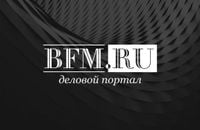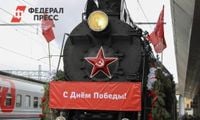On May 9, 2025, the traditional observance of Victory Day continues to resonate deeply among Ukrainians, even as the government has officially renamed the holiday to Europe Day and moved its celebration to May 8. Despite these changes, interest in the historical significance of May 9 remains robust, with the date emerging as the most popular search query in the Ukrainian segment of Google.
According to data from Google Trends, searches related to Victory Day surged on May 9, with many Ukrainians actively seeking postcards, congratulatory messages, and live broadcasts of the Victory Parade in Moscow. This trend underscores a persistent connection to the date, which commemorates the victory over Nazi Germany in World War II.
"Ukrainian users are actively searching for postcards, congratulations related to this holiday, as well as broadcasts of the Victory Parade in Moscow," reported the publication Strana.ua, highlighting the cultural significance of the day for many citizens despite the government's attempts to shift the narrative.
In 2023, President Volodymyr Zelensky signed a law that officially moved the observance of Victory Day to May 8, renaming it the 'Day of Remembrance and Victory over Nazism.' This legislative change reflects a broader effort by the Ukrainian government to distance the country from its Soviet past and promote a European identity. However, the enduring popularity of May 9 suggests that many Ukrainians still view the day as a meaningful commemoration of their historical struggles and triumphs.
In contrast, Moscow hosted a grand parade on May 9, celebrating the 80th anniversary of Victory. The event featured a display of military might and was attended by dignitaries and veterans, who were presented with commemorative gifts in the stands. This juxtaposition of celebrations highlights the differing perspectives on this significant date in Ukraine and Russia.
The search trends also revealed that queries about Victory Day in both Russian and German languages topped the charts in the German segment of Google, indicating a broader interest in the historical implications of the day beyond Ukraine's borders.
As Ukrainians navigate this complex landscape of memory and identity, the popularity of May 9 as a search term signals a deep-seated connection to the past that extends beyond governmental decrees. Many continue to honor the sacrifices made during World War II, viewing the day as a time for reflection and remembrance.
While the Ukrainian government promotes a new narrative centered around European integration, the public's interest in the traditional observance of Victory Day suggests that the legacy of World War II remains a potent force in shaping national identity. The ongoing search for Victory Day-related content reflects a desire to maintain a connection to history, even as the context of that history evolves.
In the face of changing political landscapes and cultural narratives, Ukrainians are finding ways to celebrate and remember their past in a manner that resonates with their current realities. The enduring significance of May 9 serves as a reminder of the complexities of national identity and the power of memory in shaping contemporary society.
As this year’s observance unfolds, it will be interesting to see how the interplay between official narratives and public sentiment continues to evolve. Will the interest in Victory Day diminish over time, or will it persist as a critical aspect of Ukrainian identity? The answer may lie in the ongoing dialogues surrounding history, memory, and the future of Ukraine.






